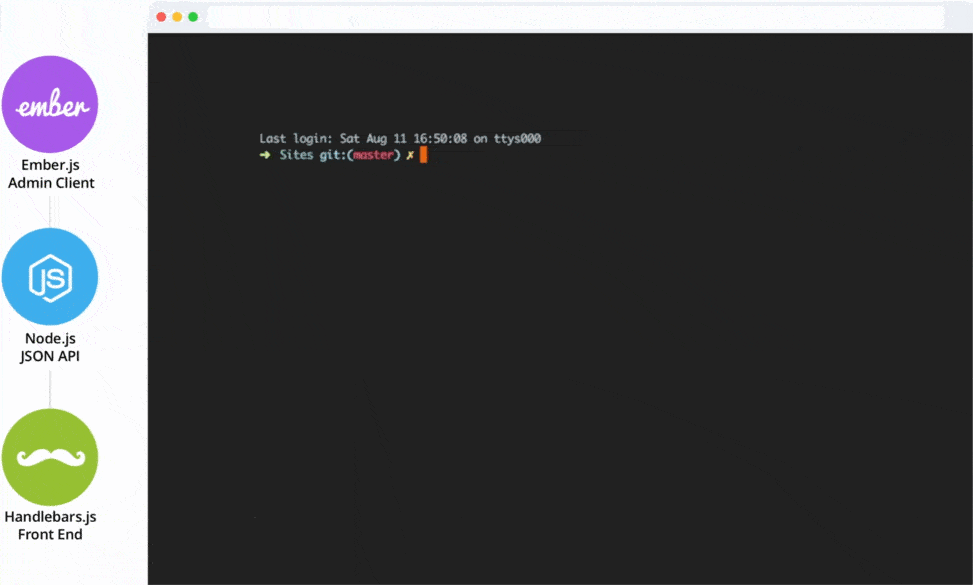refs #9326, refs #9866 **ATTENTION: This is the first iteration. Bugs are expected.** Main Goals: - add support for multiple API versions. - do not touch v0.1 implementation - do not break v0.1 ## Problems with the existing v0.1 implementation 1. It tried to be generic and helpful, but it was a mixture of generic and explicit logic living in basically two files: utils.js and index.js. 2. Supporting multiple api versions means, you want to have as less as possible code per API version. With v0.1 it is impossible to reduce the API controller implementation. ---- This commit adds three things: 1. The tiny framework with well-defined API stages. 2. An example implementation of serving static pages via /pages for the content v2 API. 3. Unit tests to prove that the API framework works in general. ## API Stages - validation - input serialization - permissions - query - output serialization Each request should go through these stages. It is possible to disable stages, but it's not recommended. The code for each stage will either live in a shared folder or in the API version itself. It depends how API specific the validation or serialization is. Depends on the use case. We should add a specific API validator or serializer if the use case is API format specific. We should put everything else to shared. The goal is to add as much as possible into the shared API layer to reduce the logic per API version. --- Serializers and validators can be added: - for each request - for specific controllers - for specific actions --- There is room for improvements/extensions: 1. Remove http header configuration from the API controller, because the API controller should not know about http - decouple. 2. Put permissions helpers into shared. I've just extracted and capsulated the permissions helpers into a single file for now. It had no priority. The focus was on the framework itself. etc. --- You can find more information about it in the API README.md (api/README.md) - e.g. find more information about the structure - e.g. example controllers The docs are not perfect. We will improve the docs in the next two weeks. --- Upcoming tasks: - prepare test env to test multiple API versions - copy over the controllers from v0.1 to v2 - adapt the v2 express app to use the v2 controllers |
||
|---|---|---|
| .github | ||
| content | ||
| core | ||
| .editorconfig | ||
| .eslintrc.json | ||
| .gitignore | ||
| .gitmodules | ||
| .npmignore | ||
| .travis.yml | ||
| Gruntfile.js | ||
| index.js | ||
| LICENSE | ||
| MigratorConfig.js | ||
| package.json | ||
| PRIVACY.md | ||
| README.md | ||
| SECURITY.md | ||
| yarn.lock | ||
Fiercely independent, professional publishing
A fully open source, powerful platform for building and running modern publications,
we power serious blogs, magazines and journalism from DuckDuckGo to OpenAI & Sky News.
Ghost.org |
Features |
Showcase |
Forum |
Documentation |
Contributing |
Donate |
Twitter




The easiest way to deploy Ghost is with our official Ghost(Pro) managed service. You can have a fresh instance up and running in a couple of clicks with a worldwide CDN, backups, security and maintenance all done for you.
Not only will it save you hours of maintenance per month, but all revenue goes to the Ghost Foundation, which funds the maintenance and further development of Ghost itself. So you’ll be supporting open source software and getting a great service! Alternatively if you'd like to support us, we're very grateful to all our backers on Open Collective ❤️
Quickstart Install
If you want to run your own instance of Ghost, in most cases the best way is to use our CLI tool
$ npm install ghost-cli -g
Then, if installing locally add the local flag to get up and running in under a minute - Local install docs
$ ghost install local
or on a server run the full install, including automatic SSL setup using LetsEncrypt - Production install docs
$ ghost install
Check out our official documentation for more information about our recommended hosting stack & properly upgrading Ghost, plus everything you need to develop your own Ghost themes or work with our API.
Getting Help
You can find answers to a huge variety of questions, along with a large community of helpful developers over on the Ghost forum - replies are generally very quick. Ghost(Pro) customers also have access to 24/7 email support.
To stay up to date with all the latest news and product updates, make sure you subscribe to our blog — or your can always follow us on Twitter, if you prefer your updates bite-sized and facetious. 🎷🐢
Contributors & Advanced Developers
For anyone wishing to contribute to Ghost or to hack/customise core files we recommend following our full development setup guides: General Contributor Guide | Developer Setup Instructions | Admin Client development guide
Copyright & License
Copyright (c) 2013-2018 Ghost Foundation - Released under the MIT license. Ghost and the Ghost Logo are trademarks of Ghost Foundation Ltd. Please see our trademark policy for info on acceptable usage.

